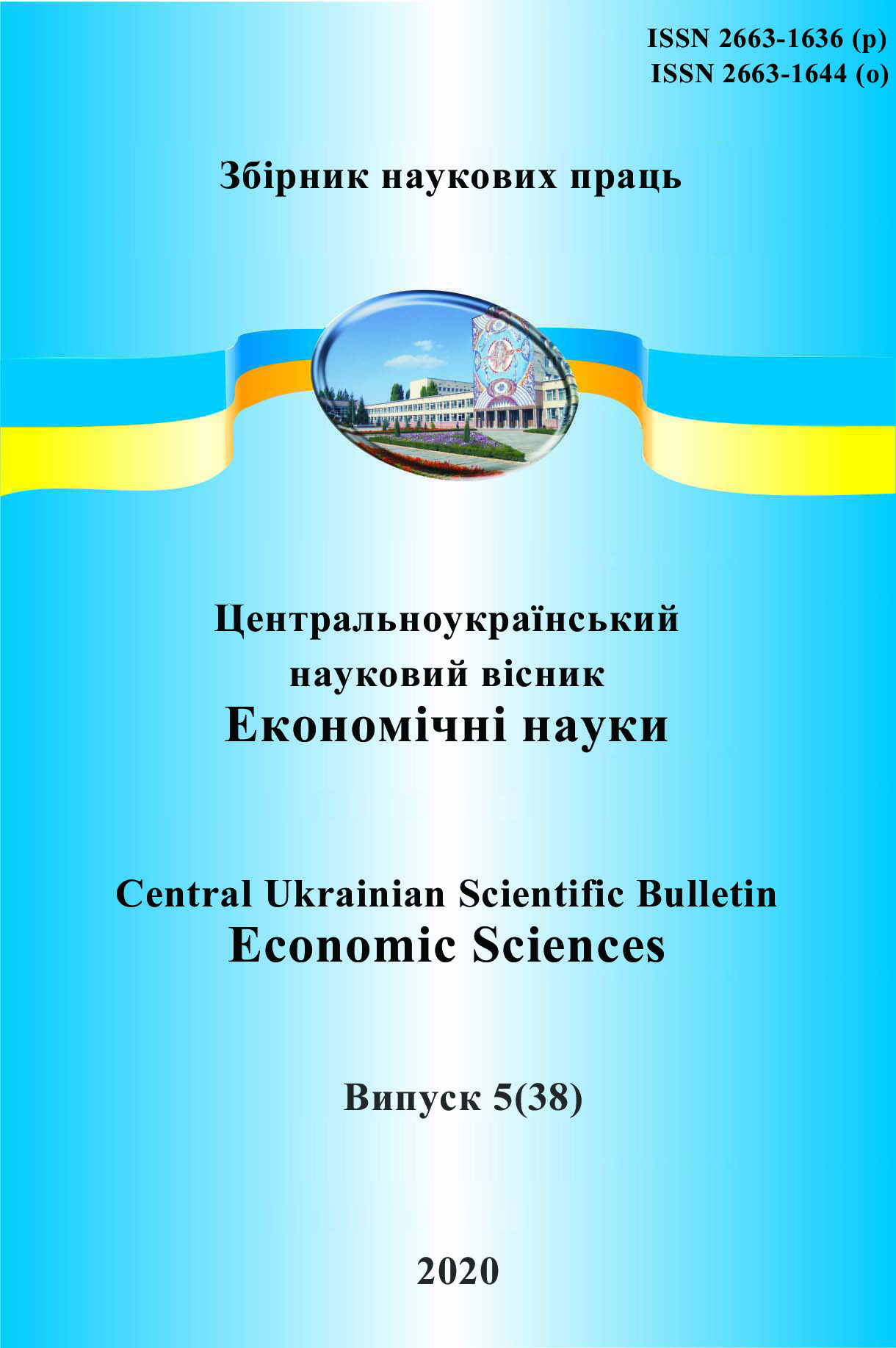Новітні форми та національні моделі регулювання фундаментальними науковими дослідженнями
The Latest Forms and National Models of Regulation by Fundamental Scientific Research
Author(s): Oleksandr Levchenko, Amin Al-GhazaliSubject(s): Politics, Economy, National Economy, Economic policy, Socio-Economic Research
Published by: Центральноукраїнський національний технічний університет
Keywords: fundamental scientific research; forms of regulation; national models; organizational and economic mechanism of regulation;
Summary/Abstract: The purpose of the publication is to generalize approaches to understanding the essence of the processes of fundamental scientific research in the context of studying the peculiarities of the use of traditional and modern forms of their regulation, as well as national emphases of administrative administration models in academic fields. The form of public regulation of fundamental scientific research is considered as a means of influencing the subject of regulation on its object, which is embodied in a specific way of exercising powers to streamline the activities of social networks to encourage the desired model for the formation of fundamental cognitive social competences and inclusive competences. Social capital within the functioning of innovation-oriented sociovital ecosystems of the post-industrial economy. The national varieties of neoliberal, conservativecorporatist (continental), social-democratic and paternalistic models of fundamental scientific research optimization in the context of the implementation of the state's socio-economic policy on the regulation of intellectual services markets are studied. The functions of the process of formation and application of forms and models of fundamental scientific research regulation are the constant expansion of public consumption resources and the formation of knowledgeintensive sources of increasing the level of collective welfare; management of the design and structure of the complex of unproduced assets of national wealth, goods produced by the real sector of the national economy/services provided by the social sector of the national economy, tangible and intangible assets with high potential for value added; formation of high-tech services based on the use of basic concepts and meeting consumer expectations in them; development of logically substantiated fundamental scientific theories of formation, updating and use of fundamental scientific knowledge, concepts and sensory-image models of the scientific picture of the world with the possibility of further use in social practice.The purpose of the publication is to generalize approaches to understanding the essence of the processes of fundamental scientific research in the context of studying the peculiarities of the use of traditional and modern forms of their regulation, as well as national emphases of administrative administration models in academic fields. The form of public regulation of fundamental scientific research is considered as a means of influencing the subject of regulation on its object, which is embodied in a specific way of exercising powers to streamline the activities of social networks to encourage the desired model for the formation of fundamental cognitive social competences and inclusive competences. Social capital within the functioning of innovation-oriented sociovital ecosystems of the post-industrial economy. The national varieties of neoliberal, conservative-corporatist (continental), social-democratic and paternalistic models of fundamental scientific research optimization in the context of the implementation of the state's socio-economic policy on the regulation of intellectual services markets are studied. The functions of the process of formation and application of forms and models of fundamental scientific research regulation are the constant expansion of public consumption resources and the formation of knowledge-intensive sources of increasing the level of collective welfare; management of the design and structure of the complex of unproduced assets of national wealth, goods produced by the real sector of the national economy/services provided by the social sector of the national economy, tangible and intangible assets with high potential for value added; formation of high-tech services based on the use of basic concepts and meeting consumer expectations in them; development of logically substantiated fundamental scientific theories of formation, updating and use of fundamental scientific knowledge, concepts and sensory-image models of the scientific picture of the world with the possibility of further use in social practice.
Journal: Центральноукраїнський науковий вісник. Економічні науки
- Issue Year: 2020
- Issue No: 5 (38)
- Page Range: 9-17
- Page Count: 9
- Language: Ukrainian

